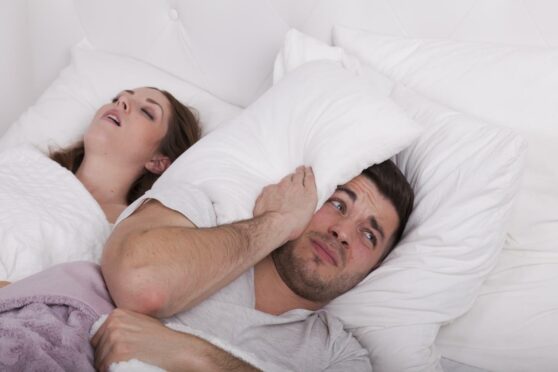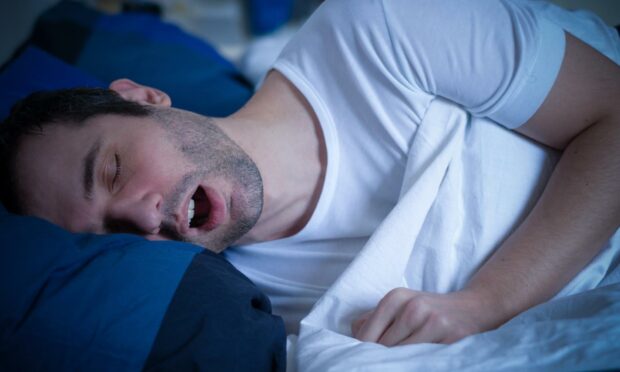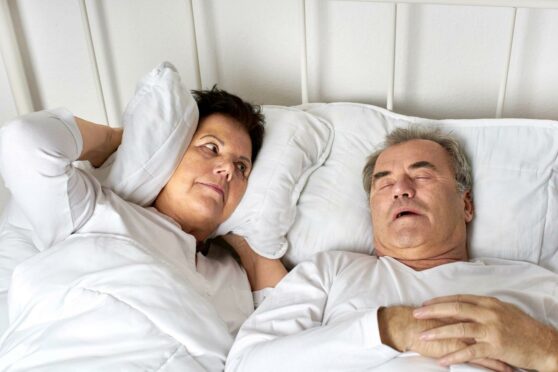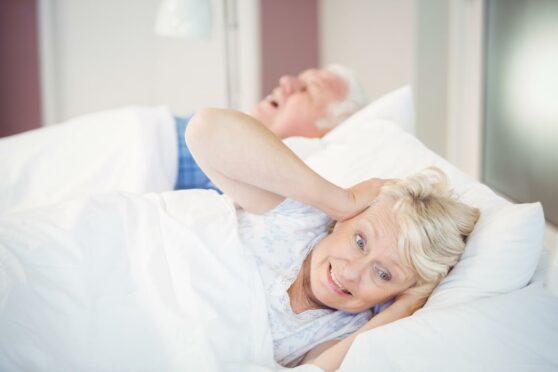You drift off to sleep, comfy and warm in your bed… only to be disturbed by… the loud and relentless sound of your partner snoring.
The frustration is real for many – especially if you live in Dundee!
New research reveals it is in the top 10 cities with the most snorers.
Sleep experts at Sleepseeker looked at 50 of the UK’s biggest cities and calculated how many internet searches were carried out into snoring by 1000 of population.
Cambridge topped the list, but Dundee came in seventh place, the only Scottish city to chart. So what causes snoring and what can you do about it?
It turns out exasperated Dundonians did 6440 searches in the last year alone!
And Gareth Donaghey, 53, from Dundee explained it’s a problem he – and his wife – have faced for many years: “I didn’t realise how loud and disruptive my snoring was.
“It wasn’t until my wife recorded my snoring and played it back to me I realised how terrible it sounded.
“Sometimes it’s so bad I have to go and sleep in the spare room to give her a chance of a good rest.”
Why do you snore?
It’s a question anyone who tries to sleep beside a snorer will have asked, but there are common lifestyle factors that increase the risk of it.
It’s reported that twice as many men snore than women. However, two in five snorers don’t realise, or admit, it.
You’re more likely to snore if you:
- Are overweight.
- Smoke.
- Drink alcohol.
- Sleep on your back.
Sometimes it’s caused by a condition like sleep apnoea, which is when your airways become temporarily blocked as you sleep.
If you have any of the common symptoms of sleep apnoea you should contact your GP.
These include:
- Your breathing stops and starts while you sleep.
- You make gasping, snorting or choking noises while you sleep.
- You always feel very tired during the day.
How do you stop snoring?
From nasal sprays, to mouth guards, chin straps and even anti-snoring pillows, there’s a wealth of products and tips out there.

But snorers can also try lifestyle changes including:
- Cutting down on alcohol and cigarettes.
- Regular exercise.
- Losing weight.
- Sleep on their side – try taping or stitching a tennis ball to the back of sleepwear, or buy a special pillow or bed wedge to help keep the snorer on their side.
- Asking your partner to use earplugs if your snoring affects their sleep.
If these simple changes don’t help, consult your GP.


